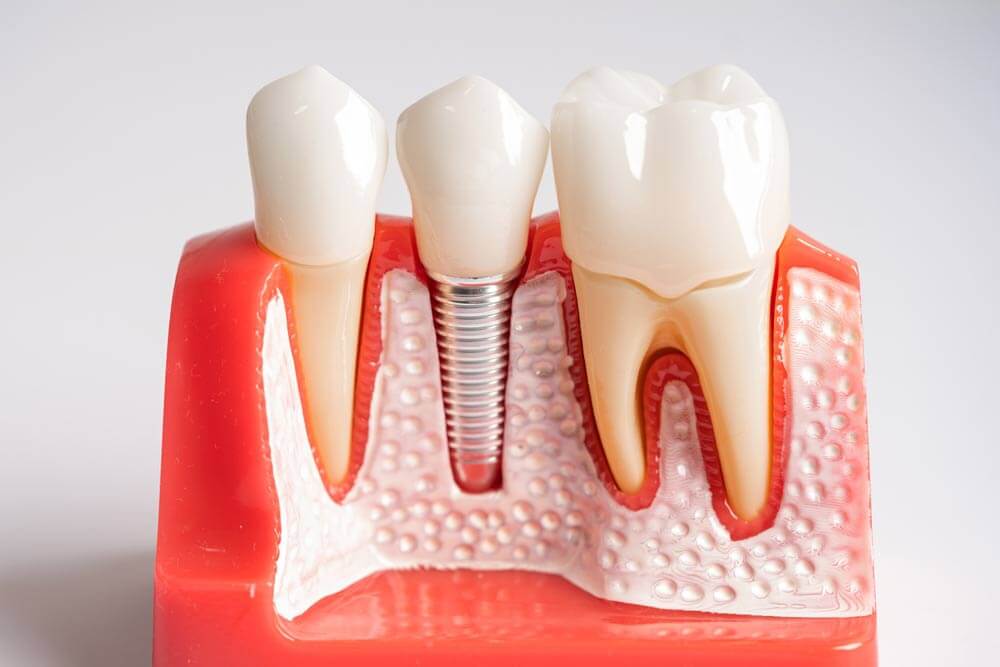If you’re missing a tooth, you have two options: replace it or don’t. If you don’t replace your tooth, you face all kinds of complications with your diet and appearance, and recent studies show that a missing tooth greatly increases your chances of losing more teeth. There are several options available for replacing a missing tooth. Research shows that dental implants are the only sure way to prevent jawbone deterioration and additional tooth loss.
Why should I replace a missing tooth?
A tooth has two parts: the crown and the root. When a tooth falls out, the section of the jaw that supported the tooth has no purpose, so it withers and atrophies. Your remaining teeth are then supported by a weakened jaw. A missing tooth also increases the workload of remaining teeth, and to balance the load, teeth shift, which can cause spaces between teeth, food impaction, and tooth decay. After about four to eight years, remaining teeth will begin to fall out as well. Up to 19% of adjacent teeth are lost as the result of a missing tooth. That’s five more lost teeth if you started with a full set!
About Dental Implants
Dental implants are the ideal tooth-replacement option, because they replace the missing tooth’s root as well as the crown. Dental implants do not require support from adjacent teeth, and they keep the jawbone strong because it has a purpose – to support the tooth’s root. With dental implants, patients do not experience increased tooth decay or sensitivity as with bridges. Dental implants have a success rate of 95 to 98%, and can also secure dentures, partials, or bridgework. With regular oral hygiene, dental implants last most people for a lifetime.
To receive dental implants, you must be in good health and have adequate bone structure. Minor pre-operatory procedures like bone and sinus grafts may be necessary to prepare you for implant surgery. For patients who cannot withstand traditional implants, mini dental implants provide a viable alternative. Your dentist will evaluate your specific case to determine which tooth option is right for your unique case.



